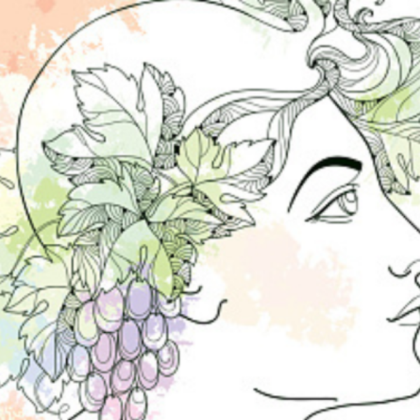To Be Bipolar
In the September edition of Muses – the arts blog from BJPsych International – Dr Dami Ajayi reviews Nigerian writer Tukura John Daniel’s memoir about his lived experience with Bipolar Affective Disorder, How to Spell Bipolar.
Tukura John Daniel is a trailblazer in the Nigerian cultural space. A man of many parts—author, literary facilitator, community organiser, activist, politician, and filmmaker–he has an easy laugh and unassuming predisposition that belies his outstanding accomplishments. But Daniel is also prone to disappearances, vanishing acts that I noticed in my interactions with him. How to Spell Bipolar, his recently published memoir, explains these disappearances for what they are: dark and disruptive moments of episodic mental illness that he has lived with since adolescence.
In popular culture, Bipolar Affective Disorder is characterised as the affliction of creative geniuses.
Indeed, a list of famous people diagnosed with Bipolar Affective Disorder was included in the Oxford Handbook of Psychiatry. That list includes Sir Arthur Conan Doyle, the creator of that genius observer of man’s malfeasance, Sherlock Holmes. Perhaps an updated edition should include eccentric rapper and music producer Kayne West, singer Mariah Carey and Tukura John Daniel.
How to Spell Bipolar tackles this romanticisation of mental illness in pop culture with granular details of biographical material. The memoir is laser-focused, decanting both memories of glitz and gloom. Told with brutal honesty, it exteriorises Daniel’s middle-class Nigerian upbringing steeped in Christian values. Daniel highlighted his early difficulties with inattention and impulsivity, which were noticed by his teachers in secondary school but rewarded with corporal punishment and social exclusion. When his symptoms snowballed into a manic episode, his family took him to a Pentecostal church pastor for an ‘exorcism’ narrated in all its disturbing minutiae. Daniel was tied and tortured—punished, once again, for an affliction that was not of his making.
Daniel lost faith in religion, education, and society. He struck out on his own, utilising his long periods of wellness for personal development. Although the word autodidact is not expressly used in this book, it best describes Daniel, who fortunately found success early as a creative person. At age 19, he was a published author whose book was in high demand in Nigeria. He ploughed his material gains into other creative ideas that grew into several profitable enterprises, but spells of bipolar episodes not only hindered the flourishing of his endeavours, they burnt them to the ground.
Like a phoenix, Daniel would rise again after each episode, energised with sparks of creativity. This short memoir is hardly about reacquiring his lost material gains. It is about his resilience, optimism, and lessons learnt from living with Bipolar Affective Disorder. It is also the story of how culture, religion and society negatively perceive mental illness and its impacts on stigma and seeking care. It took a significant amount of time before Daniel sought medical care and received his diagnosis. Perhaps Daniel may be reassured by Bipolar UK’s findings that a 9.5-year delay exists between seeing a doctor and clinching the correct diagnosis. I am reassured that Daniel feels empowered by his diagnosis.
Welcome to Muses – the arts blog from BJPsych International. This blog aims to highlight international art and artists, particularly from low-and-middle-income countries, with a focus on mental health. We welcome submissions for consideration, such as, comments on artwork, visual arts, literature, drama, films, podcasts, and videos. Do have a look at the instructions for blog authors for details on how to submit. General enquiries about the blog: BJPInternational@rcpsych.ac.uk
Dr Marinos Kyriakopoulos, Editor-in-Chief, BJPsych International.






